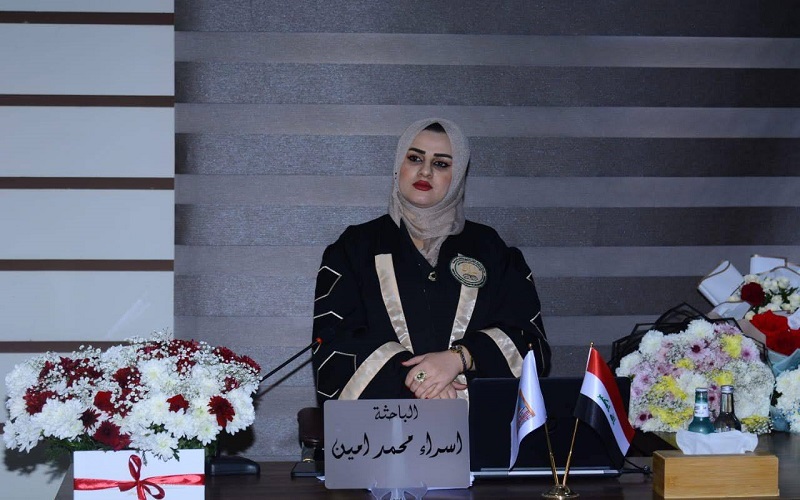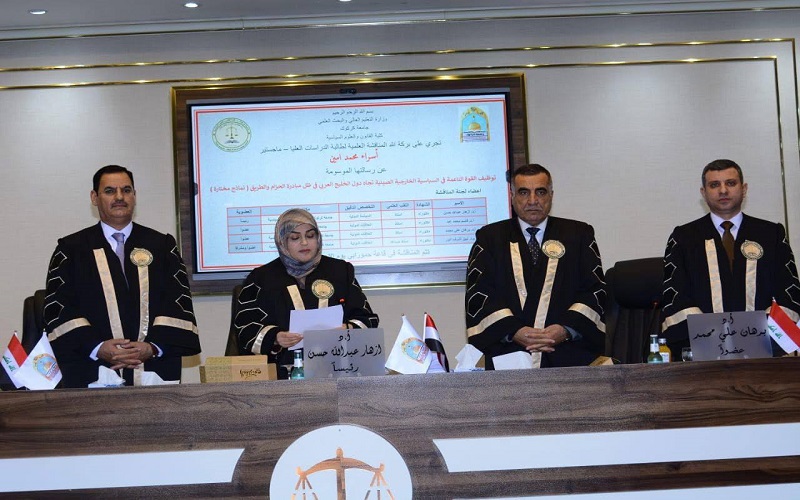A master's thesis in the College of Law and Political Science discussed: Employing soft power in Chinese foreign policy towards the Arab Gulf countries in light of the Belt and Road Initiative / Selected models by researcher Israa Muhammad Amin, in Hammurabi Hall at the College of Law and Political Science.

The discussion committee consisted of professors:
1. Prof. Dr. Azhar Abdullah Hassan / University of Kirkuk / College of Law and Political Science ... Chairman
2. Prof. Dr. Qasim Muhammad Abdul / University of Nahrain / College of Political Science ...
3. Prof. Dr. Burhan Ali Muhammad / University of Kirkuk / College of Law and Political Science ... Member
4. Prof. Dr. Nabil Asraf Anwar / University of Kirkuk / College of Law and Political Science ... Member and Supervisor
The thesis, which was discussed in the presence of the Dean of the College of Law and Political Science, Assistant Professor Dr. Murad Saeb Mahmoud, aimed to identify the role of Chinese foreign policy towards the Arab Gulf states in achieving a set of strategic goals that combine economic, political, and cultural interests. These goals include enhancing economic and energy cooperation.
The thesis concluded that hard power differs from soft power in general, in that soft power comes through diplomacy, civilizational dialogue, history, and common relations, while hard power represents the ability to use the carrot and stick policy of economic and military power to force others to submit and follow what is dictated to them by the stronger party.
 Arabic
Arabic  English
English 
